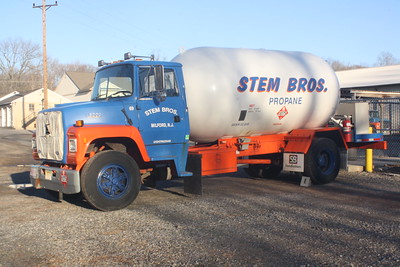
Propane is a popular fuel source for many household appliances, including water heaters, stoves, and even generators. It is a clean-burning, efficient fuel that is also relatively inexpensive. However, many people wonder if is propane cheaper if you own the tank. The answer to this question is yes, owning your propane tank can potentially make propane less expensive per gallon.
It is true that many propane suppliers will offer a reduced price for propane if you own your tank. Because the supplier does not have to provide and maintain the tank, they can offer a lower price for the propane itself. Additionally, as a tank owner, you have more negotiating power and can potentially negotiate a better price with the supplier.
When you use propane from a company, they typically charge a rental fee for the use of their tanks. This fee can add up over time, which can increase the cost per gallon of propane. However, if you own your propane tank, you can avoid these rental fees and save money on your propane costs.
It’s important to note that choosing this option also comes with additional costs. You need to purchase the tank upfront, and you will be responsible for maintaining and ensuring that the tank is up to code. You need to factor in these costs when determining if propane is less expensive per gallon if you own your propane tank.
It’s also important to compare prices of propane from different suppliers, as they can vary based on your location. It may be worth shopping around and comparing prices before making a decision about whether to purchase your tank.
Owning your propane tank can be a cost-effective option in terms of price per gallon if you use a significant amount of propane and have a place to store the tank. However, it’s important to weigh the upfront costs of purchasing a tank and maintaining it against the potential savings on propane costs. If you use a small amount of propane, it may be more cost-effective to continue renting a tank from a propane company.
Here’s How Much Can You Save in the Refill If You Own the Tank
To provide an estimate of how much you might save on propane refills by owning the tank versus leasing, we need to consider various factors. These include the size of the propane tank, the cost of propane per gallon, the frequency of refills, and the difference in pricing for customers who own their tanks versus those who lease. However, it’s important to note that these factors can vary widely based on geographic location, supplier policies, and market conditions.
Here’s a general outline of how to calculate potential savings for different tank sizes:
- Tank Sizes and Average Consumption:
- Small tanks (e.g., 120 gallons): Often used for cooking or heating smaller spaces.
- Medium tanks (e.g., 500 gallons): Common for residential heating or small commercial use.
- Large tanks (e.g., 1,000 gallons or more): Used in large residential properties or commercial settings.
- Cost of Propane per Gallon:
- This varies based on location, time of the year, and market trends. As of my last update, the average price was around $2.00 to $3.00 per gallon, but this is subject to change.
- Leasing vs. Owning Pricing:
- Propane suppliers often charge higher prices per gallon to customers who lease tanks compared to those who own their tanks. This difference can range from a few cents to potentially over ten cents per gallon.
- Calculating Savings:
- Determine the average refill quantity for each tank size.
- Calculate the cost of this quantity at the leased tank rate and the owned tank rate.
- The difference between these two costs represents the potential savings per refill.
- Frequency of Refills:
- Assess how often the tank needs refilling (annually, bi-annually, etc.).
- Multiply the savings per refill by the number of refills per year for annual savings.
- Additional Considerations:
- Initial investment in purchasing a tank.
- Maintenance and safety inspection costs.
- Potential for negotiation with suppliers if you own the tank.
Example Calculation:
Let’s take a 500-gallon tank as an example. Assume the following:
- Average leased tank propane price: $2.50 per gallon.
- Average owned tank propane price: $2.30 per gallon.
- Average annual consumption: 1,500 gallons (3 refills per year).
Savings per gallon = $2.50 – $2.30 = $0.20.
Savings per refill = 500 gallons * $0.20 = $100.
You’ll get an annual savings of = $100 * 3 refills = $300.
This example is quite simplified and the actual figures will depend on your specific circumstances. To get precise numbers, it’s best to consult with local propane suppliers for their current rates and policies.
Read related article: Can You Refill a Tank With Another Brand of Propane?
Advantages of Owning Your Tank
It’s important to weigh all the pros and cons before making a decision and consulting with a professional can help you determine which option is best for you. Here are the advantages of this option:
You Don’t Have to Worry About Monthly or Yearly Rental Payment
One of the main advantages of this option is that you will not have to pay monthly or yearly rental fees to a propane supplier. When you rent a propane tank from a supplier, they will typically charge a rental fee for the use of the tank.
This fee can add up over time, which can increase the overall cost of using propane. By owning the tank, you will avoid these rental fees, which can help to lower your overall costs.
It’s important to note that while you will not have to pay monthly or yearly rental payments, you will have the upfront cost of purchasing the tank and the cost of installation. Additionally, you will also be responsible for maintaining the tank and ensuring that it is up to code.
It’s important to factor in these costs when determining if owning your tank is the right choice for you. However, in general, this can be a cost-effective option in the long run if you use a significant amount of propane and have a place to store the tank.
You Don’t Have to Worry About Minimum Propane Purchase
You are not required to enter into a contract with a propane supplier. Contracts with propane suppliers often come with minimum consumption rates and fees that you are obligated to meet. This can be an issue if you don’t use a consistent amount of propane or if you have a change in your consumption needs.
You have the flexibility to purchase propane as you need it, without the constraints of a contract. You can purchase propane from any supplier you choose, and you are not bound to a specific supplier or locked into a certain rate.
Additionally, you also have the freedom to choose when and how much propane you want to purchase, which can be useful if you have variable propane consumption needs.
It’s worth noting that, you still have to comply with the regulations of your state and local authorities, and you might have to follow the safety guidelines for storing and handling propane.
Moreover, owning your tank doesn’t mean you don’t have to pay for the propane, you will still have to pay for the propane you consume, but you have the freedom of choosing your supplier and the amount you want to buy without being tied to a contract.
Read related article: Am I Tied to My Propane Dealer? (Reviewing Your Contract)
You Can Switch Supplier If You Decide to Do So
if you own your propane tank, you have the ability to switch suppliers if you decide to do so. When you enter into a contract with a propane supplier, you are typically locked into a certain rate and are required to purchase propane from that supplier for the duration of the contract.
This can make it difficult to switch suppliers if you are not satisfied with their service or if you find a better price elsewhere.
However, if you own your tank, you are not bound to a specific supplier and you have the freedom to switch to a different supplier at any time. This allows you to shop around for the best price and service, and to make a change if you are not satisfied with your current supplier.
It’s important to note that you might have to pay a delivery fee if you change suppliers, but it still gives you more flexibility to make a change if you need to.
It’s worth mentioning that, before switching suppliers, it’s important to check that the new supplier can deliver to your area, and that they have the right equipment to fill your tank.
Additionally, you should compare prices, service, and customer reviews to ensure that you are getting the best deal and service possible.
Read related article: Is Propane Gas Economical? (Comparison to Other Energy Sources)
Disadvantages of Owning The Tank
While there are many benefits, there are also some downsides to consider. Some of the cons of this option include:
- Upfront cost: One of the main downsides of owning a propane tank is the upfront cost. You will need to purchase the tank and pay for the cost of installation. This can be a significant expense, especially if you are on a tight budget.
- Maintenance: As the owner of the tank, you are responsible for maintaining the tank. This includes regular inspections, repairs, and maintenance to keep the tank in good working condition. This can be an added expense, and failure to maintain the tank can lead to safety hazards.
- Storage space: Propane tanks take up a significant amount of space, and you will need to have a dedicated area to store the tank. If you have limited space on your property, this can be a major drawback.
- Risk of leaks: Propane tanks can develop leaks over time, which can be dangerous and can lead to a fire hazard. As the owner of the tank, you are responsible for monitoring the tank for leaks and taking the necessary steps to repair them.
- Lack of emergency service: When you own your tank, you are responsible for monitoring the level of propane in the tank and making sure that you have enough propane to last you through the next delivery. If you run out of propane, you may have to wait for the next delivery, which can be inconvenient if you have an emergency.
- No automatic delivery: Some propane supplier offers automatic delivery service, which means that they will monitor your propane usage and deliver more when needed. If you own your tank, you will have to monitor the level of propane in the tank and schedule deliveries yourself, which can be time-consuming.
It’s important to weigh the pros and cons to consider for your individual needs and circumstances before making a decision. In general, owning a propane tank can be a cost-effective option if you use a significant amount of propane and have a place to store the tank, but it comes with the added responsibility of maintaining the tank and monitoring the level of propane.
Should You Own or Rent Your Propane Tank?
Whether you should buy or rent a propane tank depends on several factors such as the amount of propane you use, the duration of your usage, your budget, and the availability of space to store the tank.
If you use a consistent amount of propane and plan to use it for an extended period of time, owning a propane tank can be more cost-effective in the long run as you will not have to pay a monthly or yearly rental fee. Additionally, owning a tank allows you more flexibility in terms of choosing your supplier and you are responsible for maintaining the tank.
However, there is an upfront cost associated, including the cost of the tank itself, installation, and any necessary permits. Additionally, owning a propane tank means that you are responsible for maintenance and inspection, which can be an additional cost.
It’s also important to consider safety and the availability of space to store the tank. Propane is a flammable gas and tank leaks, improper handling, and other safety hazards can be a concern when owning your tank. Additionally, propane tanks take up space and must be stored in a safe and secure location.
Considering all these factors, it’s a good idea to consult with a professional who can help you determine which option is best for you. This professional can help you weigh all the pros and cons of buying your propane tank and make an informed decision that best suits your needs.
To Make a Conclusion
Owning a propane tank can save you money in the long run if you use a consistent amount of propane and plan to use it for an extended period of time.
However, there is an upfront cost associated with owning a tank. Renting a propane tank eliminates the upfront cost but you will have to pay a monthly or yearly rental fee. Additionally, this allows you to have more flexibility in terms of choosing your supplier and you are responsible for maintaining the tank.
If you rent a propane tank, the supplier is responsible for maintenance and inspection. It’s important to weigh all the pros and cons before making a decision and consulting with a professional can help you determine which option is best for you.

Mike is an experienced propane technician with over 15 years of professional experience in the field. He has dedicated his career to helping customers with their propane needs, from installation to maintenance and repair. Together with Jeremy, he co-founded this website to provide useful information and guidance to customers seeking reliable propane services.







